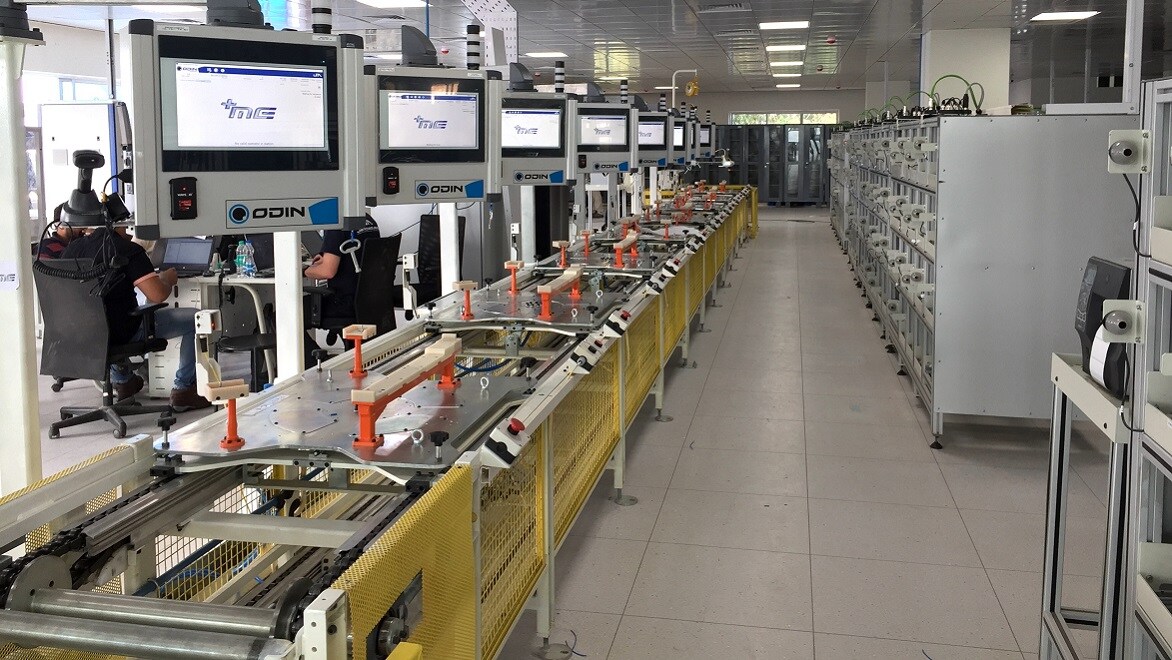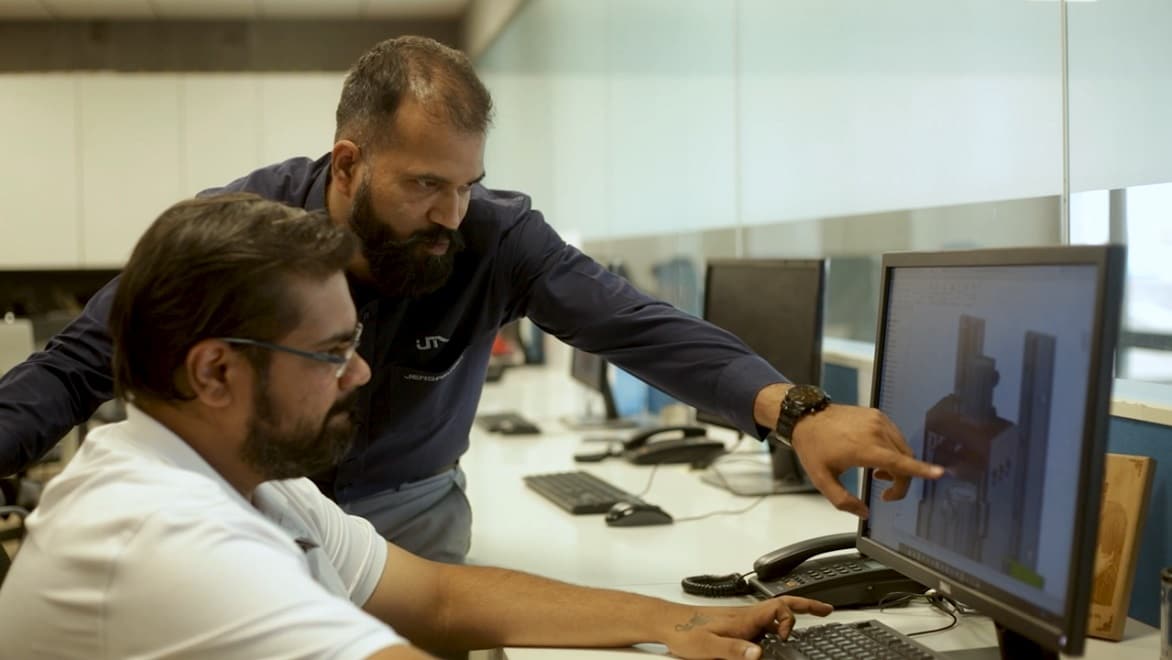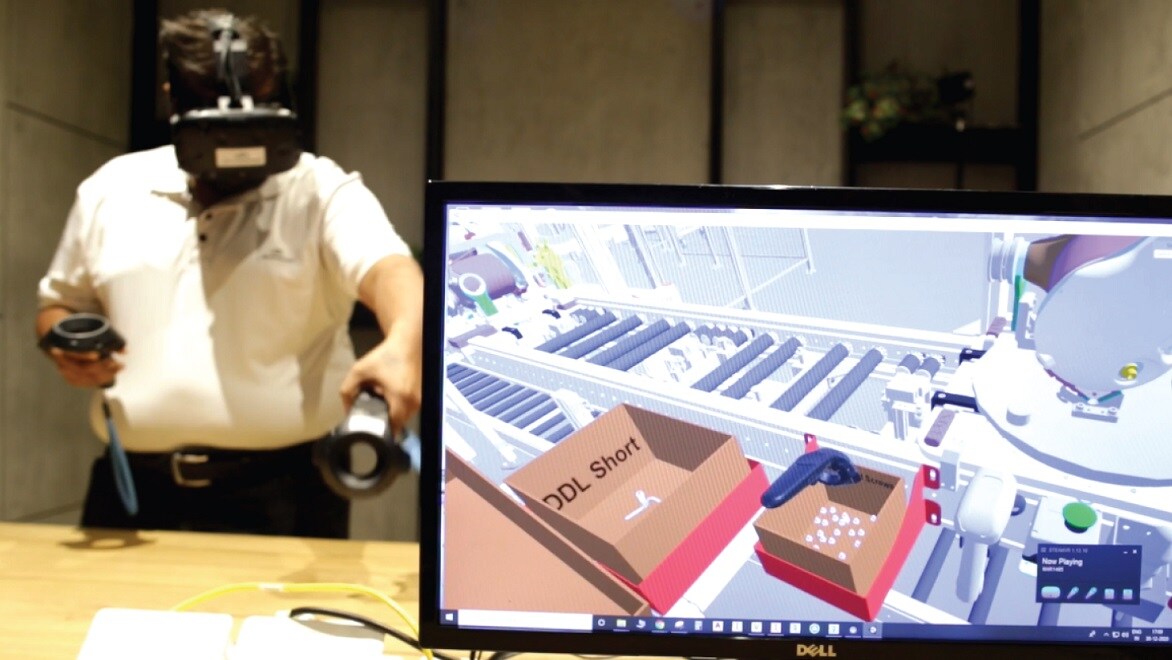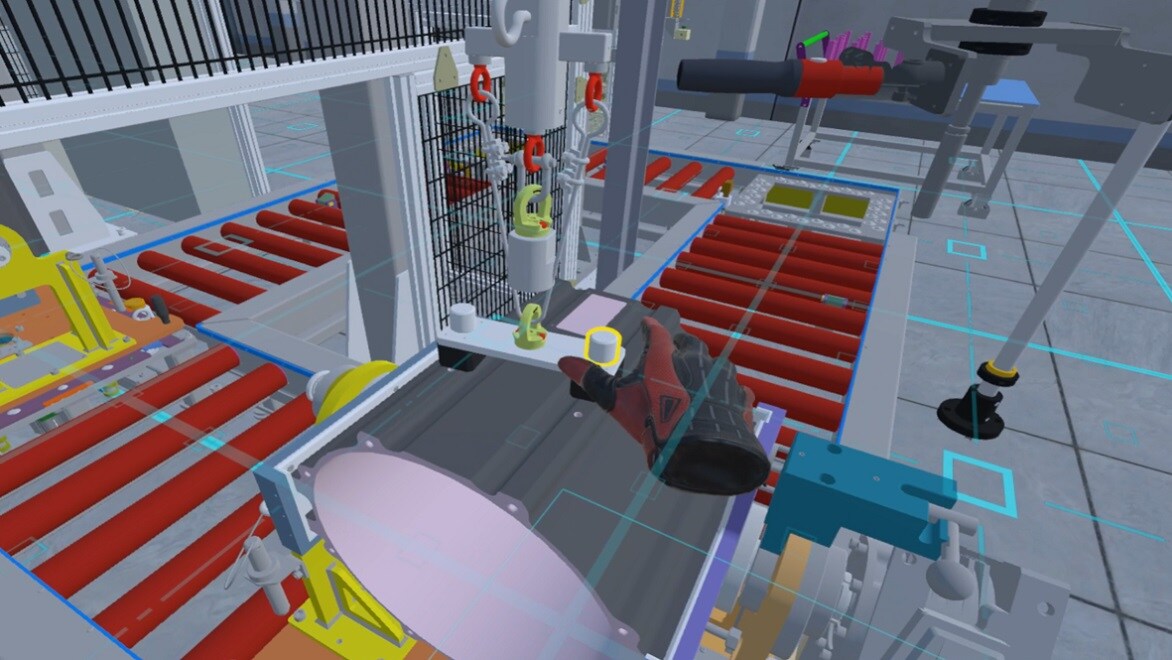JENDAMARK INDIA
Accelerating automotive manufacturing through digital transformation
THE NEW POSSIBLE
Share this story
Immersive technologies and cloud collaboration revolutionize design on the assembly line
Asia-Pacific’s automotive industry is big business: The region’s electric vehicle market alone is predicted to grow by nearly 30% a year through 2025. For the automotive manufacturing experts at Jendamark India, this was a huge opportunity—one that would require a digital transformation to meet. Through cloud-based technologies, immersive VR, and more, Jendamark has boosted its productivity, allowing the company to outpace competition and drive future growth.
A company with innovation at its core
Imagine being able to preview every angle of every machine in an assembly line months before it’s complete, and collaborate with a colleague to refine the designs—all without leaving your living room. At Jendamark India, this isn’t just a future manufacturing goal. It’s part of an in-house digital revolution that clients can benefit from today.
A part of global tech company Jendamark Automation since 2014, the team at Jendamark India are experts in technical innovation. The company specializes in automotive assembly systems, and boasts a state-of-the-art manufacturing facility in Pune. It has been a leader in developing electric vehicle (EV) component assembly systems for some of the world’s leading auto manufacturers.

Jendamark India's EV battery pack assembly line. Image courtesy of Jendamark.
“We pioneered the Industry 4.0 revolution and implemented automated assembly solutions that are truly best in class. Today, we’re using technologies like augmented and virtual reality to deliver out-of-the-box engineering solutions. Innovation has been key to winning our customers’ trust and delivering world-class and cost-effective turnkey projects. Autodesk has been our partner in this digital journey all along.”
—Himanshu Jadhav, CEO, Jendamark India
Empowering design thinking
Each project Jendamark undertakes for its customers is unique, creating constant pressure to deliver customized high-precision manufacturing solutions on tight schedules. The company’s design teams traditionally used Inventor and AutoCAD as standalone products, but challenges with remote collaboration had begun to affect the design revision process and project delivery.
The onset of the pandemic prompted Jendamark India to accelerate the company's digital transformation process to help address the issues with collaboration. While some manufacturing companies were sceptical about adopting a work-from-home model, the Jendamark team were enthusiastic from the start.
.

Design team members collaborate on a custom manufacturing assembly solution. Image courtesy of Jendamark.
Digital investments deliver results
Early adoption of Autodesk’s Product Design & Manufacturing Collection proved instrumental in Jendamark’s digital transformation. This powerful set of applications extends the capabilities of AutoCAD and Inventor, and enables design teams to work remotely from home without compromising design workflows and project timelines. Using Vault, remote teams control all design data in one location, so they can keep revision histories intact, lock approved designs, and reuse previous designs.
Jendamark’s designers can just as easily collaborate with customers—gaining quicker input from multiple stakeholders, resolving ergonomics issues, optimizing line layout, and obtaining faster sign offs—to make design modifications before manufacturing begins. “The collection has helped improve individual as well as team productivity in the overall project life cycle,” Jadhav says.
“We’ve gained true collaboration capabilities that enable us to get real-time input from all project stakeholders, which helps us reduce rework, optimize resources, and add clarity to design expectations. This has helped increase our productivity by 30% and optimize costs by 15%.”
—Himanshu Jadhav, CEO, Jendamark India
Moving into virtual worlds
Another game-changing part of Jendamark India’s digital transformation has been incorporating virtual and augmented reality solutions into the design process. Sophisticated VR product visualizations, developed with 3ds Max, enable the team to more effectively demonstrate innovative machine designs to customers.
VR gives Jendamark an edge in working with customers such as Ashok Leyland, one of India’s largest automotive brands. “We won a prestigious project to design and manufacture a futuristic engine line at the company’s plant at Hosur,” explains Jadhav. Using a VR setup to present machine designs helped speed up design approvals and reduced rework, saving time and money. “Ashok Leyland’s experts were awestruck when they experienced this virtual design approval system,” he says.

Jendamark India customers can review and approve product designs in a virtual reality experience. Image courtesy of Jendamark.
Making an impact
In addition to improving productivity, reducing unforeseen redesign costs, and improving remote collaboration, Jendamark India’s digital transformation has also enabled the team to take steps towards a broader company vision: creating a unique brand identity.
“Our digital journey has helped solidify our position as a tech-savvy manufacturing company,” Jadhav says. “Today, Jendamark is a trusted brand in an ecosystem of clients and partners. Our plan is to not only get bigger but to get better at what we do. Coming up with a flawless design is never easy, but with Autodesk’s software collection coupled with the extended capabilities of Inventor and AutoCAD, we can let our imaginations take flight.”

Jendamark India also creates VR solutions to provide interactive training for assembly line operators. Image courtesy of Jendamark.





